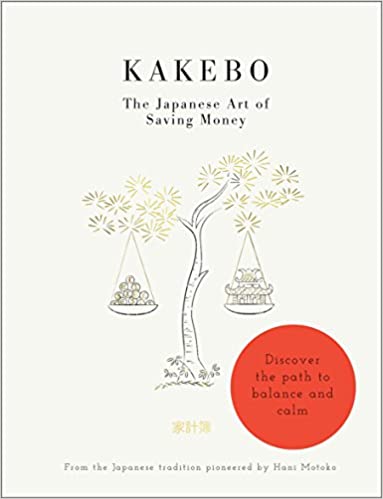
If you’re safely riding out the pandemic and working from home like I am, then there are obvious reasons for gratitude. And yet, this inflection point may also give you greater leverage to control your financial future.
From a report in Fast Company:
To ride out the storm, professionals of all generations appear to be turning to “portfolio careers” to earn their living through a mix of contracted freelance jobs, consulting gigs, short-term projects, board membership, and other engagements that allow them to apply their expertise under flexible conditions.
Given that Generation X is already at a point where ageist layoffs arise, job dissatisfaction is high, and disruptive automation technologies are coming even faster due to COVID-19, we may lead the charge away from traditional employment arrangements:
With stronger levels of dissatisfaction building before COVID-19, it is safe to assume that this crisis may push Gen-Xers, in particular, to steer their careers in a new direction. According to data from BMO Wealth Management, 50% of Gen-Xers who have portfolio careers cite “having autonomy and control” as a top motivator for self-employment—the highest of all generations.
Another way to think about a “portfolio career” is the personal enterprise. The term was coined in the book Unscaled by Hemant Taneja, and he means that the key to navigating the coming economy is to live an entrepreneurial life.
His use of “entrepreneurial” is a bit different than you may be thinking. Taneja is a venture capitalist who sees most full-time jobs disappearing (even if the pandemic didn’t happen), replaced by just-in-time contractual talent that operates via enhanced technology.
Instead of a crafting a resume to land a single employer, Taneja sees a mix of long-term contracts, freelance projects, side hustles, and entrepreneurial products that you develop and market with the aid of the AI and automation that once threatened to replace you.
Will this be a challenging shift for more job-oriented people? Yes, but I’m afraid everyone needs to reset their thinking about what a “career” means now, and into the future.
Plus, this challenge also presents an opportunity to craft a more meaningful set of activities that make you money, while providing greater flexibility to bake-in health and personal growth initiatives.
Even if you manage to maintain a traditional “real job,” all the current career advice says you’re still going to to have to think and perform like an entrepreneur to do well.
The problem is, with just one change of heart (or lack thereof), your sole employer can smash all your proverbial eggs. Meanwhile, the personal enterprise approach simply looks for a replacement egg to add to the mix that maintains (or even accelerates) your income.
To paraphrase Lincoln, the best way to predict the future is to create your best personal version of it. Now seems like the ideal time to start.
This is How Each Generation Can Freelance During and After the Pandemic
Down below, Trudi explores saving money like the Japanese. And the Flashback addresses that big, immortal question: “Alles klar, Herr Kommissar?”
Keep going-
P.S. Want to feel old? MTV VJ Kurt Loder turned 75 yesterday. Yeah, you’re welcome. 🙂
Did someone forward this issue of Further to you? We’d love to have you join us by signing up here.
further: books
Kakebo – The Art Of Saving
 Are you really aware of what you spend? Do you know how to value things beyond their price? For the answer to these questions and more, look no further than Kakebo — the budgeting journal used by millions every day in Japan to manage their household spending. (Amazon)
Are you really aware of what you spend? Do you know how to value things beyond their price? For the answer to these questions and more, look no further than Kakebo — the budgeting journal used by millions every day in Japan to manage their household spending. (Amazon)
When you buy a book through us, we get a store credit to buy more books. Thank you!
Mind on Your Money, Money on Your Mind

By Trudi Roth
For most of us, the pandemic is a source of additional financial stress. I say “additional” because Gen X is used to being known as savings slackers, maybe due to our unique position of supporting both growing children and aging parents. That means worries about our family’s physical health are compounded by financial health concerns.
Then again, the Great Pause has also put the brakes on normal spending patterns. We’re more focused on what’s essential, and less able or interested in shopping for fun and sport.
This naturally compels us to become more aware of our finances — which makes it the perfect time to harness the power of a Japanese technique for mindful budgeting: kakeibo.
Kondo your financial house
Kakeibo (or kakebo) was created by Japanese journalist Hani Motoko in 1904 as a household accounting system, and it blends thoughtful goal-setting with bookkeeping. The results go beyond simply sticking to a budget and saving.
The Japanese believe that tidiness in one’s finances is as important as tidiness in one’s house — and indeed for them, the act of thinking mindfully about where one’s money goes is in itself a recipe for calm and well-being.
To get started, all you need is to know is how much money you have available and typically spend, plus a savings goal, and areas you’d like to improve. You’ll also need a pen and paper because this is a handwritten, visual practice.
How to use kakeibo
At the beginning of the month, you’ll figure out your budget by subtracting your fixed expenses (rent, food, transportation, medical, phone) from your income. You’ll also set a savings goal. Currently, this might seem impossible, but even a small amount does the trick.
Kakeibo has you put your expenditures in four buckets: needs (fixed expenses), leisure or wants (what you desire but isn’t necessary, like ordering in or purchasing trendy clothes), culture (buying books), and extras (unanticipated expenses or one-offs, like birthday gifts).
Each day, jot down what you spend in your ledger. Do this with pen and paper, in real-time. This gives you a chance to slow down to become conscious of your habits in the present and consider how it may affect your future.
At the end of the month, you’ll do a review of what you spent, by bucket. Not only will you see the big picture of whether you stuck to your budget and managed to save, but you’ll also notice your successes and your challenges.
Cultivating awareness helps relieve your worry and fear around money. Ultimately that’s the point of kakeibo: bringing balance and peace of mind into your day-to-day life. And that in its own right is, well, like money in the bank.
Kakeibo: The Mindful Japanese Budgeting System That Can Help You Save
Kakebo: The Japanese Art of Saving Money | Amazon
further: flashback

Falco – Der Kommissar
Single, 1981
Your mind may play tricks on you with the passage of time, but Falco never did a version of Der Kommissar in English. You’re thinking of the cover done by a British outfit called After the Fire in 1982. Thanks to Liz Farr for the selection! (YouTube)
further: sharing
Please forward this issue of Further to a friend. Thank you!
